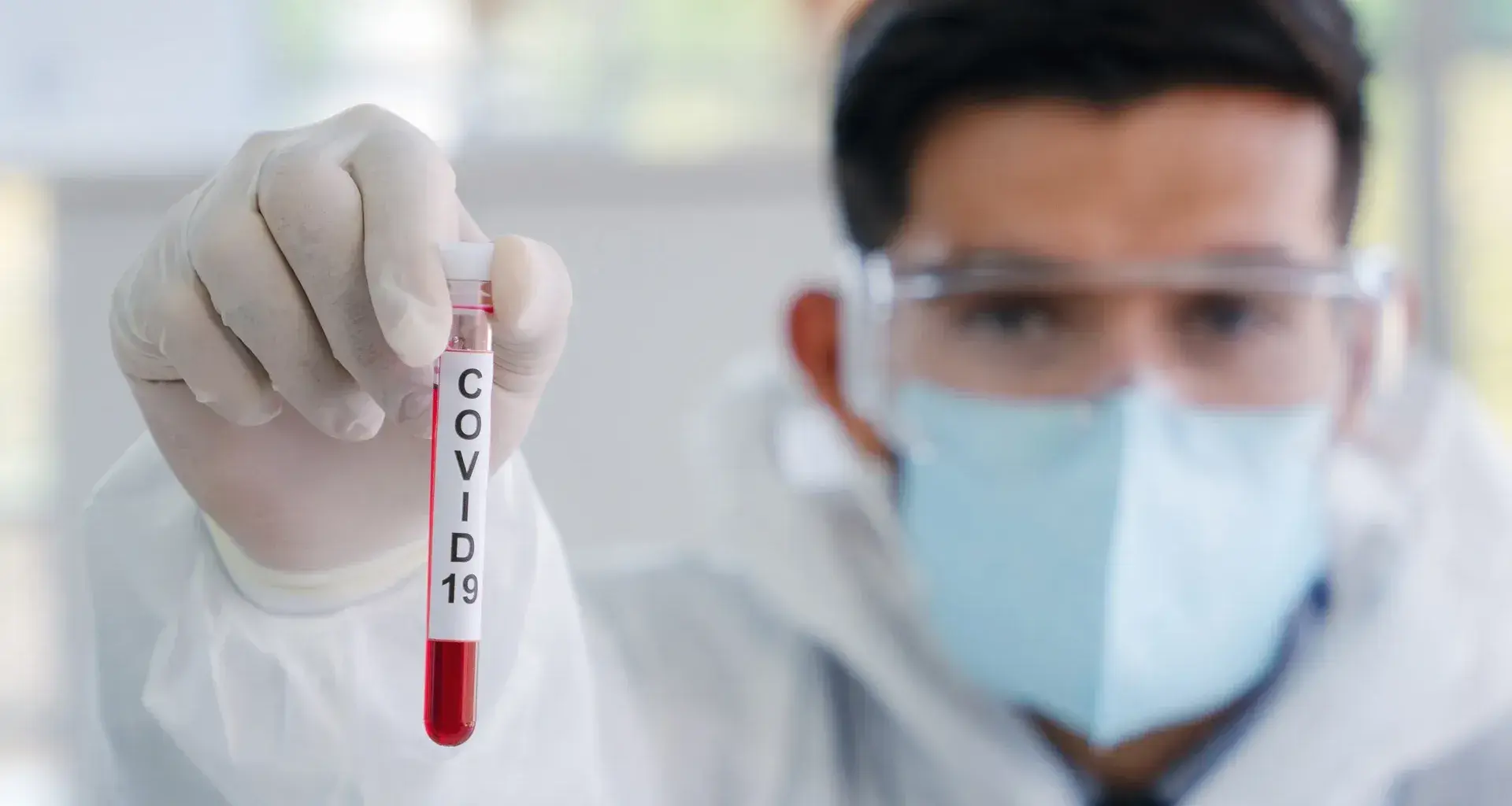Story updated on April 2, 2020.
What measures should I take to prevent COVID-19? Is there a product that can prevent infection? What happens if I receive a letter or a package from China? Is it dangerous to open it?
CONECTA asked the specialists at TecSalud, the health system of Tecnológico de Monterrey, and health institutions for official information in order to respond to several questions and myths about this topic.
Does breathing hot air kill the novel coronavirus?
A video on social media claims that breathing air in a sauna or from a hairdryer helps to prevent or treat the novel coronavirus. However, experts at the World Health Organization state that there is no evidence to support treating COVID-19 with heat.
Source: https://www.who.int/es/emergencies/diseases/novel-coronavirus-2019/advice-for-public/myth-busters
Can mosquitoes transmit the novel coronavirus?
To date, there has been no information or evidence to suggest that SARS-CoV-2 can be transmitted via mosquitoes.
Source: https://www.who.int/es/emergencies/diseases/novel-coronavirus-2019/advice-for-public/myth-busters
Can colloidal silver prevent and cure COVID-19?
Health authorities in the United States have indicated that this substance is neither effective nor safe to use against any disease.
Does eucalyptus help prevent the spread of COVID-19?
Experts and health authorities in the United States have indicated that eucalyptus does not prevent infection, nor is it a cure, but it can help to combat some of the symptoms caused by the disease.
Is the disease called coronavirus or COVID-19?
As reported by the WHO, the official name to refer to the disease as such is COVID-19. However, the virus that causes this disease is still called SARS-CoV-2.
Antibiotics are effective in the prevention and treatment of COVID-19
No, antibiotics do not work against viruses. They only work on bacteria. COVID-19 is a virus and therefore antibiotics should not be used as a method of prevention or treatment.
Source: https://www.who.int/es/emergencies/diseases/novel-coronavirus-2019/advice-for-public/myth-busters
We should call the Epidemiological Intelligence Unit to take the COVID-19 test at home.
Information on social media suggested that workers from the Epidemiological and Health Intelligence Unit (Unidad de Inteligencia Epidemiológica y Sanitaria, UIES) are making house calls to detect COVID-19.
However, the Ministry of Health has confirmed that this is false information.
Source: https://www.gob.mx/salud/prensa/la-secretaria-de-salud-aclara
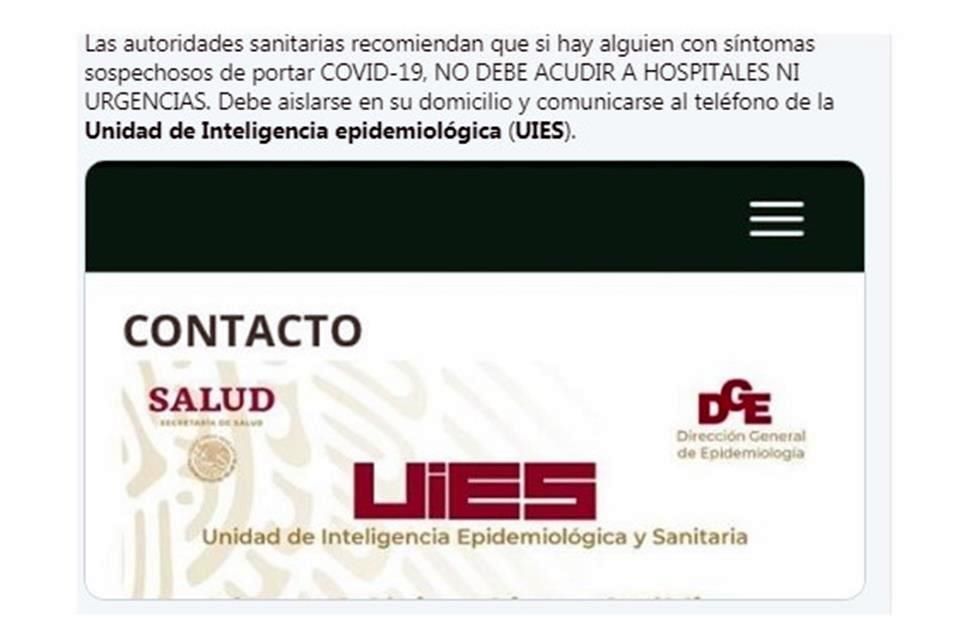
A specific medication already exists for the prevention or treatment of COVID-19.
Although information about several medicines has been circulating on social media (for example, how the antiviral Interferon Alfa 2B, a Cuban drug, is being used in China to cure COVID-19), no specific medicine has been recommended to date for the prevention or treatment of the virus.
“There are medicines that are currently under evaluation, but they’re still experimental. We already know about some of them and they’re being evaluated to see if they have any effect,” explains Reynaldo Lara, an infectious disease specialist at TecSalud. He goes on to say that they only alleviate the symptoms.
The WHO states that “to date, there is no specific medicine recommended to prevent or treat the new coronavirus (2019-nCoV).”
Source: https://www.who.int/es/emergencies/diseases/novel-coronavirus-2019/advice-for-public/myth-busters
Ibuprofen makes patients with COVID-19 worse
After the French Minister of Health tweeted that the use of ibuprofen aggravates the effects of COVID-19 on patients, the WHO informed the press that there is still no evidence to suggest this, but recommended that it is better to use paracetamol.
Fuente: Twitter / WHO (World Health Organization)
Q: Could #ibuprofen worsen disease for people with #COVID19?
— World Health Organization (WHO) (@WHO) March 18, 2020
A: Based on currently available information, WHO does not recommend against the use of of ibuprofen. pic.twitter.com/n39DFt2amF
Vaccines against pneumonia or influenza protect against coronavirus
Vaccines against pneumonia and influenza do not provide protection against COVID-19. The virus is new and different and needs its own vaccine.
“We need to study the virus to know which structural particles could generate immunity. We need to do trials. Producing a vaccine is not that simple and it can take time,” states Dr. Lara.
On March 16, the first human tests of an experimental vaccine were announced in the United States, and on March 17, China too announced the first tests of a vaccine against COVID-19. Days later, Russia also claimed to have started testing a vaccine.
However, experts have indicated that it will be several more months before they have a safe vaccine that can be distributed en masse.
Source: https://www.who.int/es/emergencies/diseases/novel-coronavirus-2019/advice-for-public/myth-busters
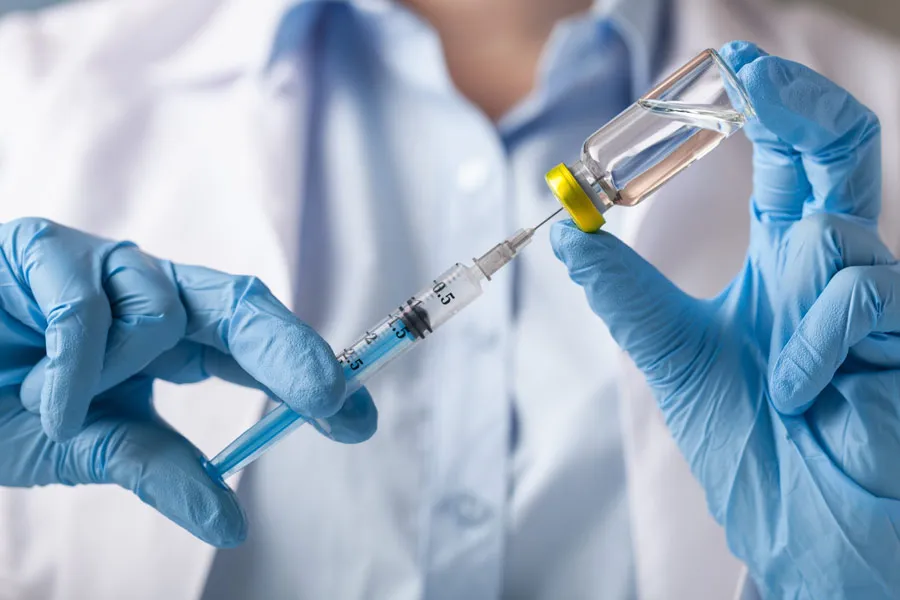
It isn’t safe to receive a letter or package from China.
Receiving a letter or package from China is safe. People who receive packages from China do not run any risk of contracting COVID-19.
Source: https://www.gob.mx/salud/documentos/covid-19-mitos-y-realidades?state=published
Eating garlic can help to prevent infection by the novel coronavirus COVID-19
Garlic is a healthy food. However, there is no evidence to suggest that eating garlic protects people against the current outbreak.
Source: https://www.who.int/es/emergencies/diseases/novel-coronavirus-2019/advice-for-public/myth-busters
Using a face mask helps protect you from getting the virus.
If you have no respiratory symptoms that are typical of COVID-19 (above all, a cough) or you are not taking care of a person that may have contracted the disease, it is NOT necessary to wear a clinical face mask.
Disposable face masks can only be used once and you should also bear in mind that if you are not sick or looking after a person who is, it is a waste of a mask.
The supply of masks throughout the world are running out and the WHO is urging people to use them sensibly.
Source: https://www.who.int/es/emergencies/diseases/novel-coronavirus-2019/advice-for-public/myth-busters
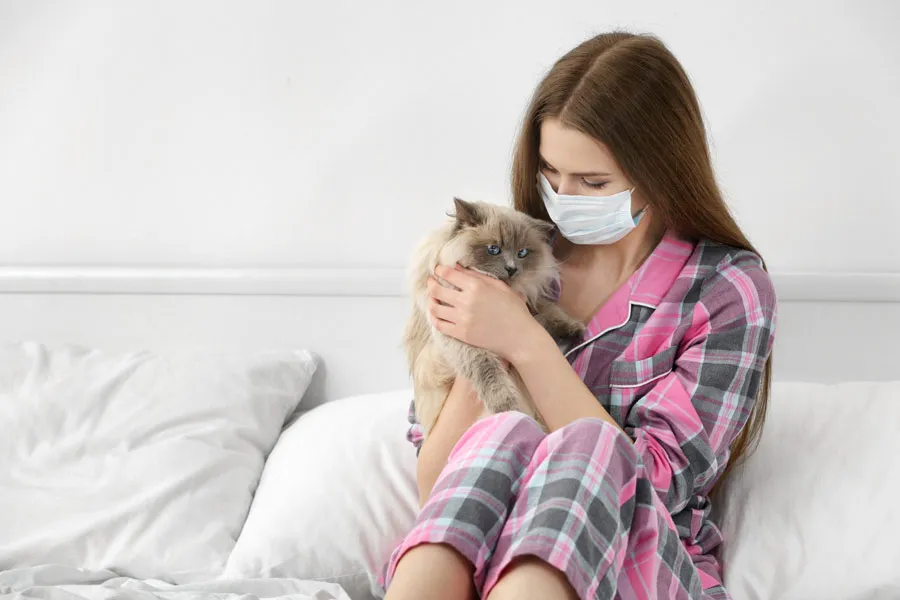
Pets can spread the novel coronavirus COVID-19
Currently, there is no evidence that pets such as dogs and cats can be infected with the virus.
However, it is always a good idea to wash hands with soap and water for a minimum of 40 to 60 seconds, or use antibacterial hand gel with an alcohol base of 70%.
Source: https://www.gob.mx/salud/documentos/covid-19-mitos-y-realidades?state=published
The novel coronavirus can be killed in 30 seconds with a hand dryer such as the ones you find in public bathrooms.
No. Hand dryers do not kill COVID-19. To protect yourself against the novel coronavirus (COVID-19) it is recommended that you wash your hands with soap and water for a minimum of 40 to 60 seconds or use antibacterial hand gel with an alcohol base of 70%.
Once clean, dry them well with paper towels or a hot air dryer.
Source: https://www.who.int/es/emergencies/diseases/novel-coronavirus-2019/advice-for-public/myth-busters
The novel coronavirus can be combated by spraying your body with alcohol or chlorine.
No. Spraying your entire body with alcohol or chlorine does not kill viruses that have already entered the body. Spraying these substances can damage clothes and mucus membranes (i.e. eyes, mouth, etc).
Source: https://www.who.int/es/emergencies/diseases/novel-coronavirus-2019/advice-for-public/myth-busters
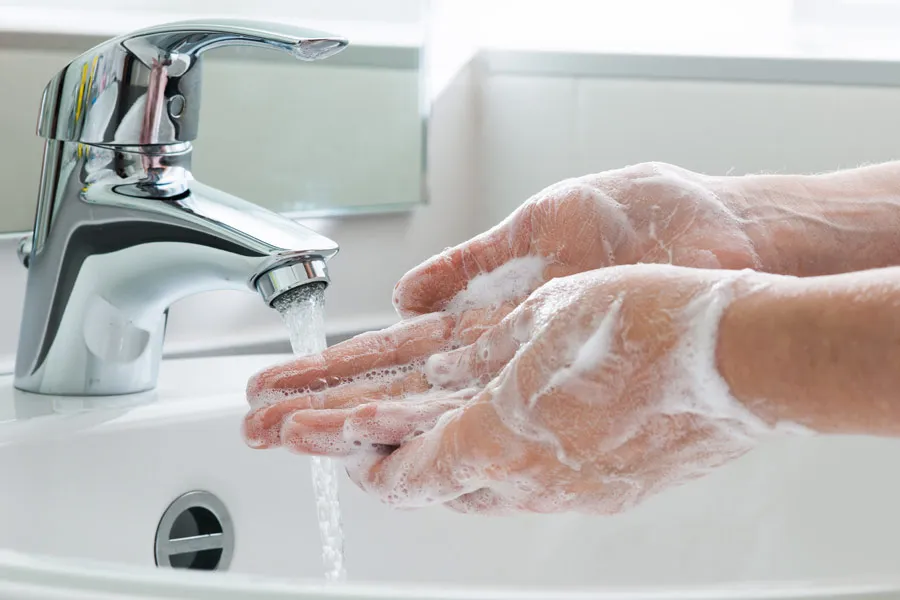
Drinking water mixed with lime juice, hot water or taking lots of vitamin C prevents you from catching COVID-19.
This is false. The best way to avoid infection is to follow the hygiene measures outlined by experts.
Source: https://factual.afp.com/consumir-mucha-vitamina-c-no-impide-contagiarse-del-nuevo-coronavirus
You don’t have COVID-19 if you can hold your breath and drinking sips of water prevents the spread of the novel coronavirus.
False. The WHO maintains that there is no evidence of this since the virus can only be detected with a laboratory test and drinking water does not “flush it out”.
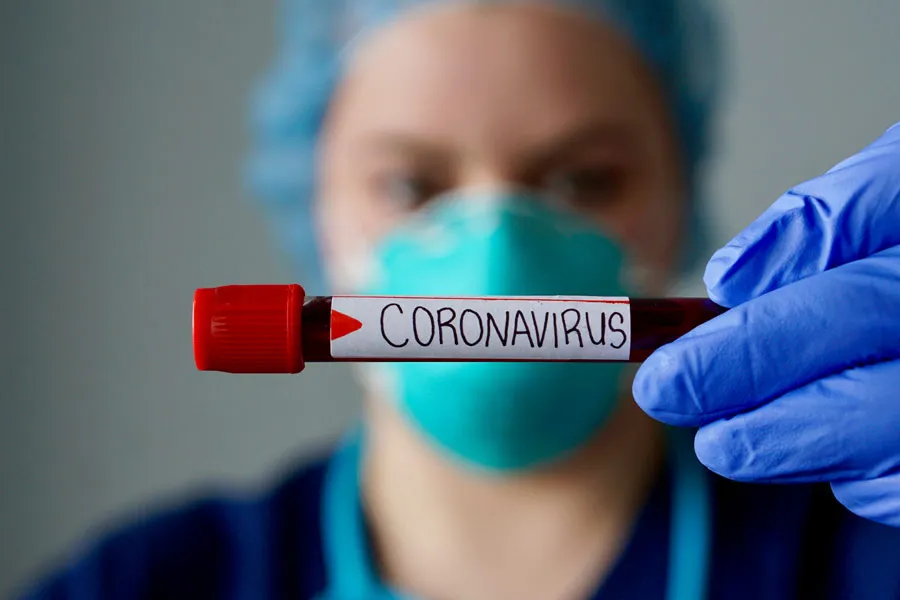
For how long can the virus live in the environment?
It isn’t very clear, although there is a recent study that reports other coronaviruses living on surfaces from several hours up to 9 days, but it is not about the SARS-CoV-2 virus.
However, it is important to note that even if the virus is present, its viability to cause the disease is unknown due to several factors such as ambient temperature.
Although there are preliminary studies, findings suggest that the time the virus can live outside of the human body depends on which surfaces it is found.
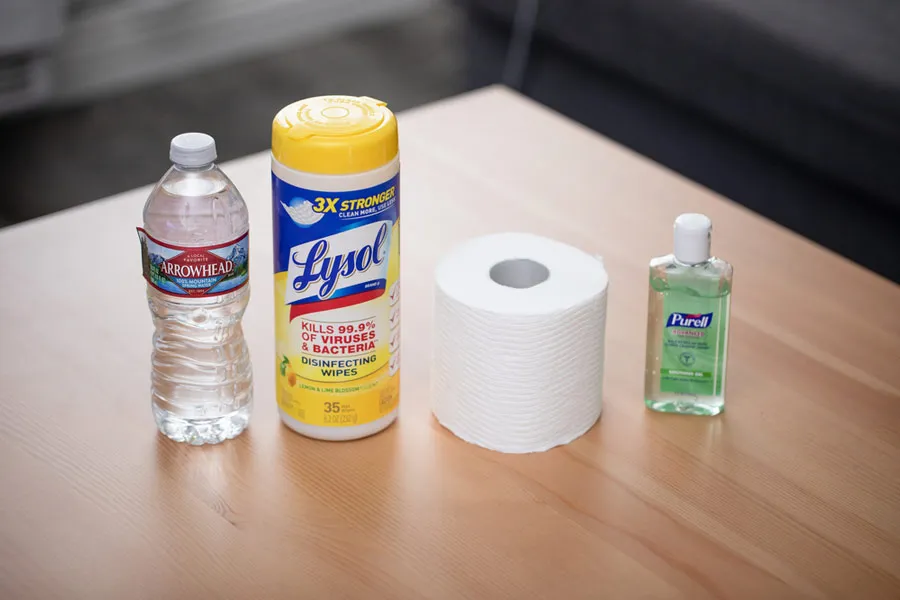
Can cleaning products and disinfectants kill the novel coronavirus?
Some cleaning products and disinfectants state on the label that they can protect against certain viruses.
There are studies that show that certain products, such as Lysol, can disinfect surfaces that have the novel coronavirus.
It is worth taking note that caregivers (people in charge of those who are infected) must thoroughly clean everything, as those surfaces their patients come into contact with, such as tables, beds, and devices, must be constantly disinfected.
Source: https://www.americanchemistry.com/Novel-Coronavirus-Fighting-Products-List.pdf
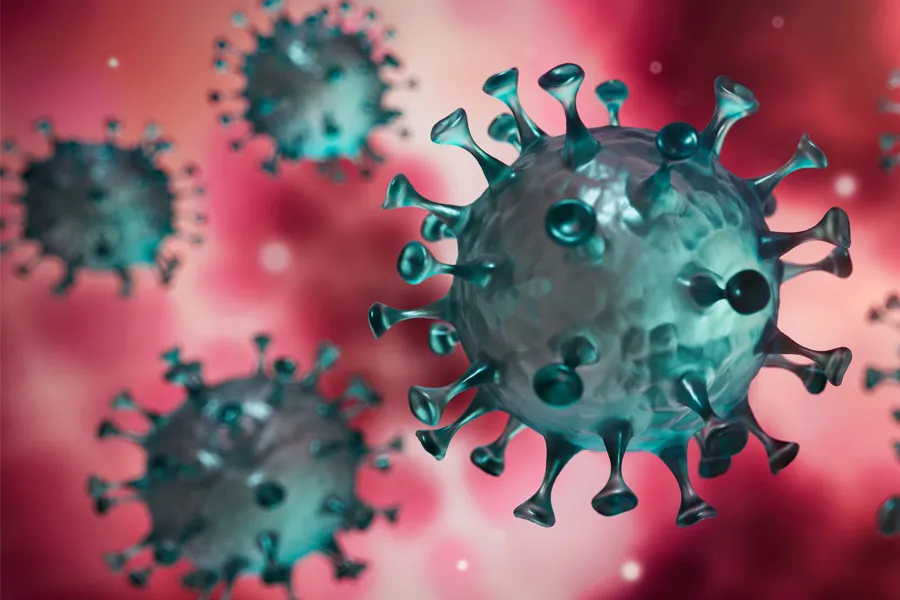
Can I prevent infection with saline nasal rinses / mouthwashes?
Rinsing your nose with a saline solution could help a faster recovery from a common cold.
However, health authorities say there is no evidence that this or the use of mouthwashes prevents the spread of coronavirus.
Source: https://www.who.int/es/emergencies/diseases/novel-coronavirus-2019/advice-for-public/myth-busters
Can you prevent infection by gargling with hot water / salt water / vinegar?
No. The temperature of water has no effect against COVID-19 nor do the health recommendations from several countries mention that gargling with a specific ingredient can be effective against the virus.
Coronavirus is not heat resistant and dies at 26 to 27°C
So far, it isn’t known whether the climate or the temperature has an impact on the spread of COVID-19.

“We’re all responsible for our health, so I urge you to follow the basic prevention measures for preventing the rapid spread of COVID-19”, said Dr. Michel Fernando Martínez, head of the TecSalud Epidemiological Surveillance Unit.
“As a preventive measure, it’s of the utmost importance to avoid crowded areas to prevent the rapid spread of COVID-19,” he added.
READ ALSO:

